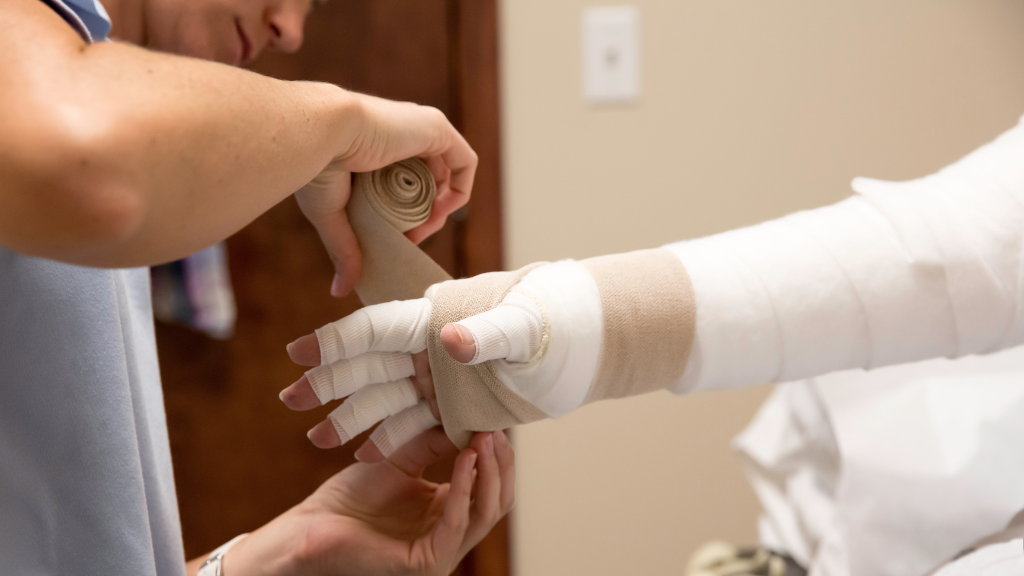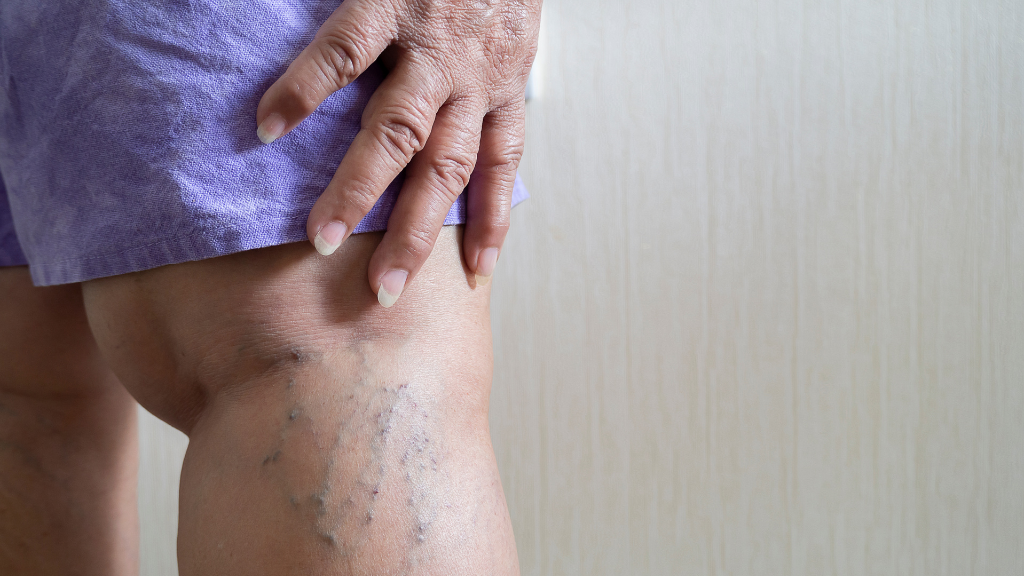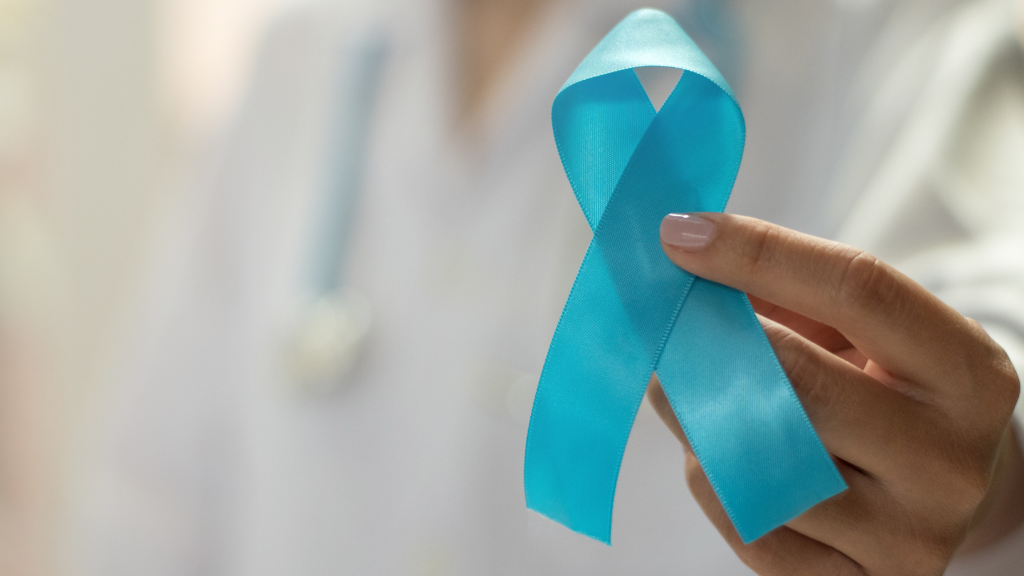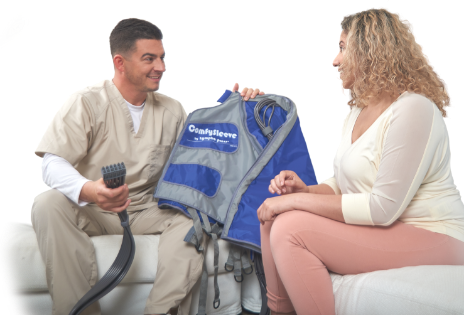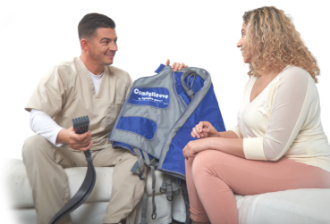This is a 5-minute read.
Are you in the midst of searching for a specialist to treat lymphedema for you or a loved one? You deserve world-class care and treatment for your lymphedema, but choosing the right provider is challenging. What makes a great lymphedema specialist? What should you look for in a lymphedema treatment center?
Here are the top criteria to consider when seeking a new doctor to support you in your lymphedema journey.
Lymphedema Certification and Credentials
When you’re looking for a lymphedema treatment specialist to treat lymphedema, start by asking if they’re a certified lymphedema therapist (CLT). This is a key certification any lymphedema professional should hold to treat patients appropriately.
In the United States, certain medical professionals can become CLT-certified after 135 hours of training with two-thirds classroom instruction and one-third virtual instruction. The training involves lymphedema therapy instruction, compression bandage application, and many other vital aspects of treating the condition and its side effects.
There are also many related types of professionals who are often involved with lymphedema treatment. Related specialties include: vascular, radiology, plastic surgery, hematology, and oncology. If your lymphedema has a rare presentation, you may need to be seen by a multidisciplinary team. Consult a world-class resource like the Mayo Clinic’s list of lymphedema doctors qualified to treat your condition.
Types of Therapy to Treat Lymphedema
Complete decongestive therapy (CDT) is widely considered to be the gold standard of care to treat lymphedema. It consists of manual lymph drainage, compression, skin care, exercise, and patient education. It is good practice to check if any potential lymphedema professional or treatment center uses CDT as a primary part of the treatment regimen. Each aspect of CDT works together to provide the best outcome; leaving out just one element can negatively impact your outcome.
In addition to CDT, adjunctive therapies can be used effectively to treat lymphedema symptoms:
- Pneumatic compression devices
- Alternative velcro compression garments and wraps
- Home exercise
- Elevation
- Self manual lymph drainage
- Wound care
- Lymphedema surgery
Ask which options the treatment facility regularly offers. It’s common for most lymphedema therapy centers to provide CDT, wound care, and compression, for example, but other options might not be available.
Lymphedema surgery must be performed by a surgeon that specializes in this field, and not all patients are good candidates for surgery. You’d need to consult a highly specialized surgeon, one who performs lymphedema microsurgery, to explore this option.
Experience in the Industry
To begin your search for a specialist to treat your lymphedema, request information about their experience in the lymphedema industry and their practice’s background. How long have they been a CLT? How many therapists are on staff to treat lymphedema patients properly? Do they have any specialized training such as head and neck lymphedema, oncology certification, wound care, or pediatric certification?
Also, ask questions that help you understand how their therapy regimen typically works. Ensure they follow the industry’s best programs with elements based on evidence-based practice.
Cost, Payment Options, and Supplies Required
Establish how payment works before you arrive for your first visit. You may need to pay with cash, handle a copay, or arrange partial to total coverage through insurance or a government plan. Compression is a key aspect of the initial phase of CDT, and some facilities may require you to buy supplies before your first visit to limit disruption in care.
In the U.S., some aspects of lymphedema treatment are eligible for coverage under insurance, Medicare, or Medicaid. For example, hands-on manual lymphatic drainage (MLD) is covered by Medicare if it’s considered medically necessary. The billing department should be able to check your insurance benefits before treatment begins so you are aware of expected costs.
Ongoing Support and Lifestyle Options to Treat Lymphedema
Checking with a new lymphedema practitioner to see what ongoing support and services they offer for people with lymphedema is a helpful tip to prepare you for the process ahead. How will your future visits be structured in terms of support from their clinic staff? Is there a community support group that welcomes patients from the clinic?
Some medical specialists who treat lymphedema incorporate lifestyle recommendations into patients’ treatment plans. Exercise and diet modifications have proven benefits for lymphedema. Ask a new practitioner whether this might include a class or group that supports healthful eating and/or low-impact, lymphedema-friendly exercise options.
Affiliations and Industry Connections
Ask any potential lymphedema professional about their affiliations with nationwide and local lymphedema networks. These connections can be incredibly helpful as you build your community of support for your lymphedema journey.
Below are three important resources to assist with your search.
LANA Search
As mentioned above, the Lymphology Association of North America (LANA) is one of the world’s most reputable organizations for lymphedema information and research. LANA’s certified specialist search tool is one of the best resources you can use to find a lymphedema professional.
NLN Directory
If you’d like to see if a certain lymphedema professional is part of the National Lymphedema Network (NLN), use the NLN’s lymphedema therapy directory. Like LANA, the NLN allows searching by region, which is helpful if you’re looking for someone in your local area.
Lympha Press
Lympha Press provides information, resources, roundtable events, and therapy products that help people thrive as they treat lymphedema. Numerous clinical studies and doctors’ recommendations support the benefits of Lympha Press products. To learn more, contact Lympha Press.
